Hubei holds a special place in tennis, producing Olympic medalists and a Grand Slam champion
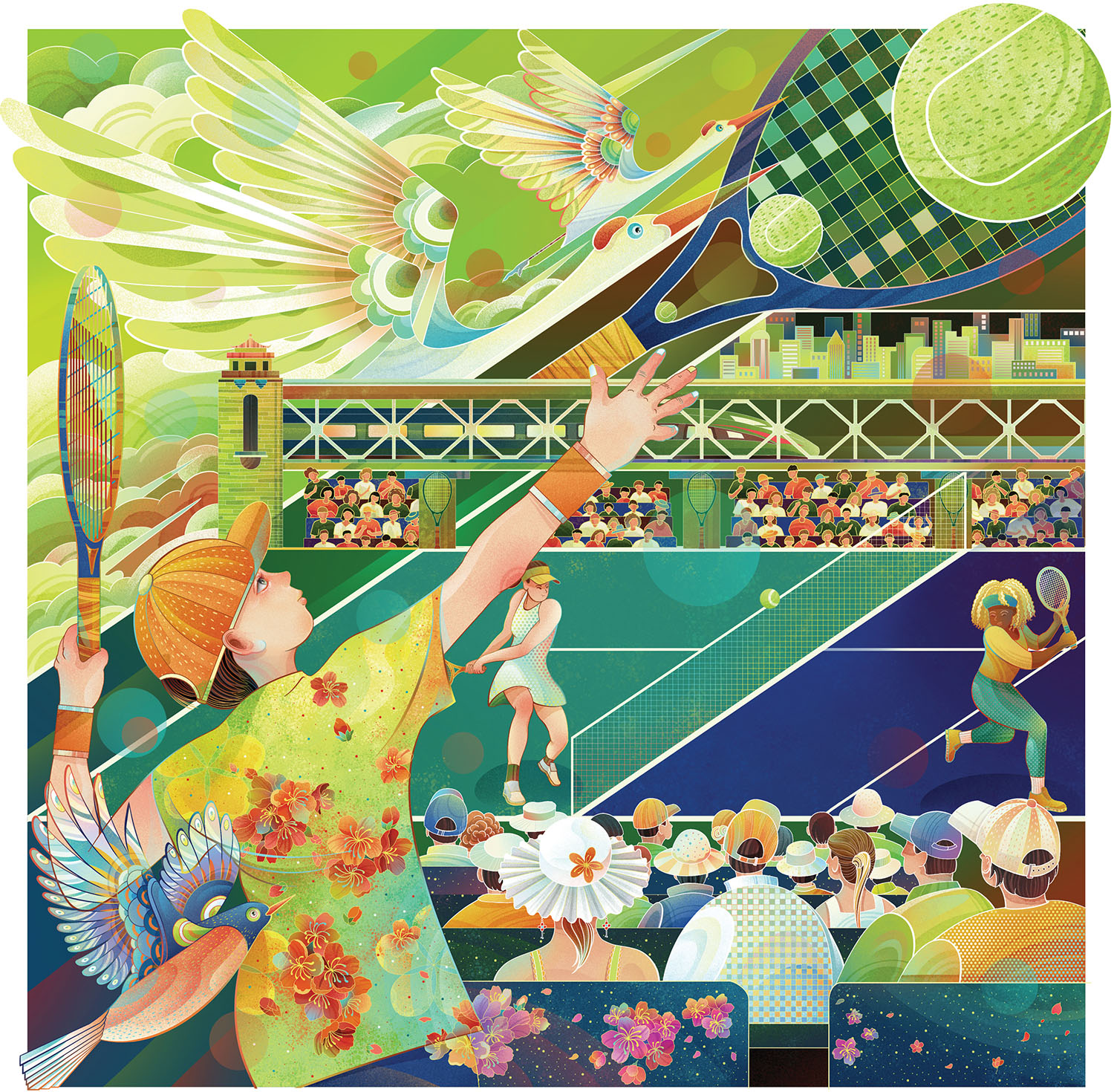
Fresh off her Olympic victory, Zheng Qinwen embarked on a grueling stretch of four consecutive tournaments, culminating in a runner-up finish at the Wuhan Open, her hometown event, in October.
In a parallel storyline, 11-year-old Li Mengxiao, also from Wuhan, Hubei province, is chasing her own tennis dreams.
Ranked 41st in the girls’ U12 category by the Chinese Tennis Association, Mengxiao in mid-October was still more than 1,300 points shy of qualifying for her year-end championship. But the young hopeful planned to compete in several more tournaments and was determined to close the gap.
The Wuhan Open was an occasion that connected two generations of Chinese tennis. As Zheng battled on the court, Mengxiao was right there with her — serving as a ball girl for every match, and watching up close as her hometown hero carved out yet another milestone in her career.
Earlier this year, Mengxiao watched Zheng compete against Aryna Sabalenka in the Australian Open women’s singles final. At the Wuhan Open, with the two facing off again, she had the chance to observe Zheng even more closely.
“I learned a lot about how top players adjust during matches, especially when they’re not at their best. Zheng, for instance, would give herself pep talks before stepping back on court, while Sabalenka took a break to change clothes after dropping a set,” Mengxiao said.
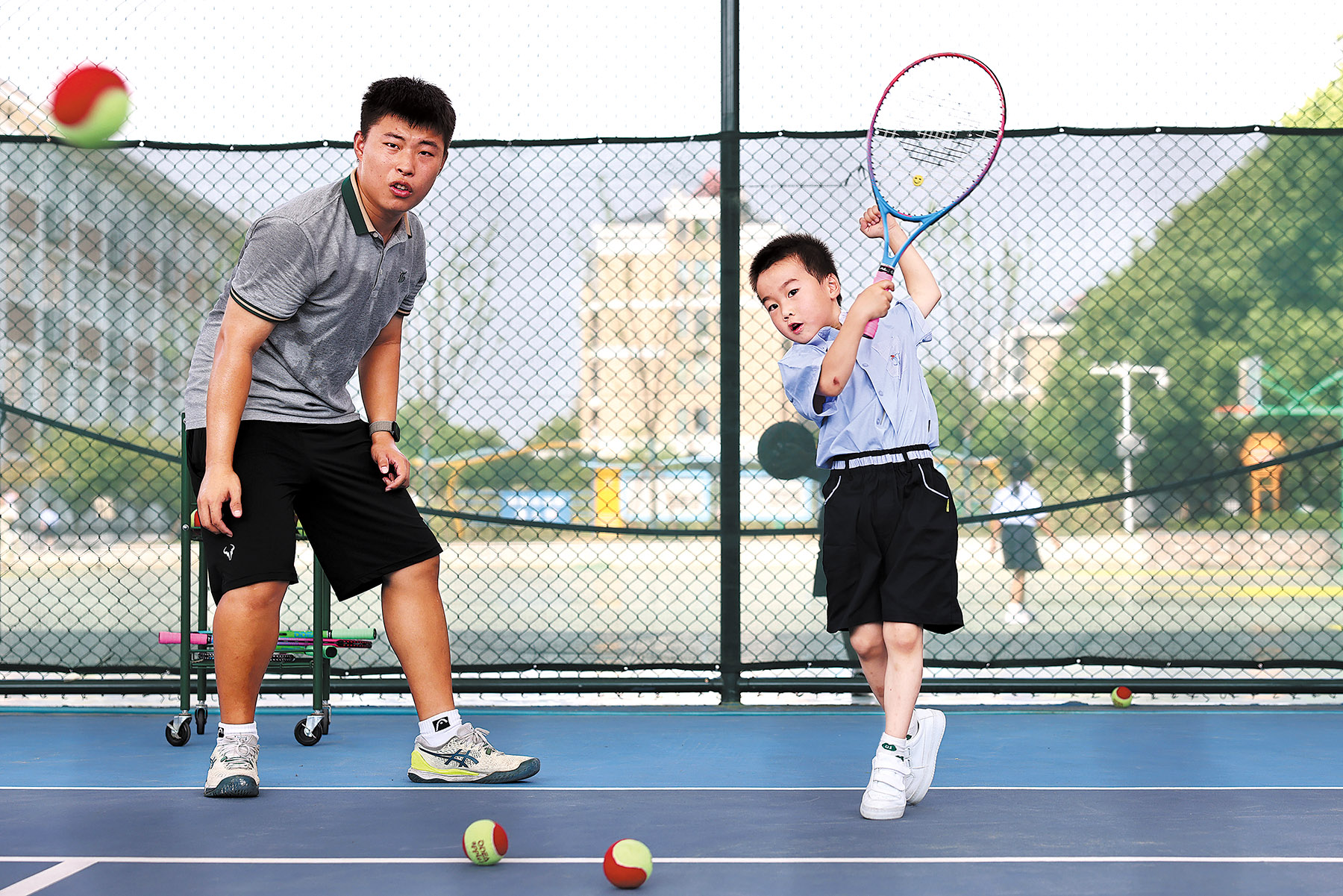
Sabalenka eventually defeated Zheng 6-3, 5-7, 6-3 in a thriller to claim her third consecutive Wuhan women’s title.
Following Zheng’s Olympic triumph, tennis fever has swept across China, and Wuhan and Hubei in particular, sparking a surge in interest. Tennis training centers have been overwhelmed with inquiries, equipment sales have skyrocketed, and the excitement surrounding the Wuhan Open reached new heights.
As the final WTA 1000 event of the season, the recent Wuhan Open broke records for both single-day and total ticket sales. Revenue surpassed 25 million yuan ($3.52 million), a 4.88-fold increase compared with 2019, and more than 180,000 spectators attended — a rise of over 80 percent from five years ago.
The tournament also ignited local youths’ interest through player visits to schools and ball boy and ball girl recruitment.
Mengxiao, who has played tennis for more than five years, was selected as a ball girl. Having attended the Australian Open and China Open as a spectator, she had always admired how sharp and poised the ball kids looked on court.
So when her hometown tournament began recruiting, she wasted no time asking her parents to sign her up.
After two rounds of a rigorous selection process and eight days of focused training, Mengxiao secured a spot among the 86 official ball kids. The experience of living away from her parents for over 10 days made a lasting impression.
Beyond observing how top players adjust their strategies mid-match, Mengxiao deepened her understanding of tennis rules and made many new friends who share her passion for the sport. “Some of the ball kids are people I’ve competed against in past tournaments. On the court, we’re rivals, but off the court, we’re friends,” she said.
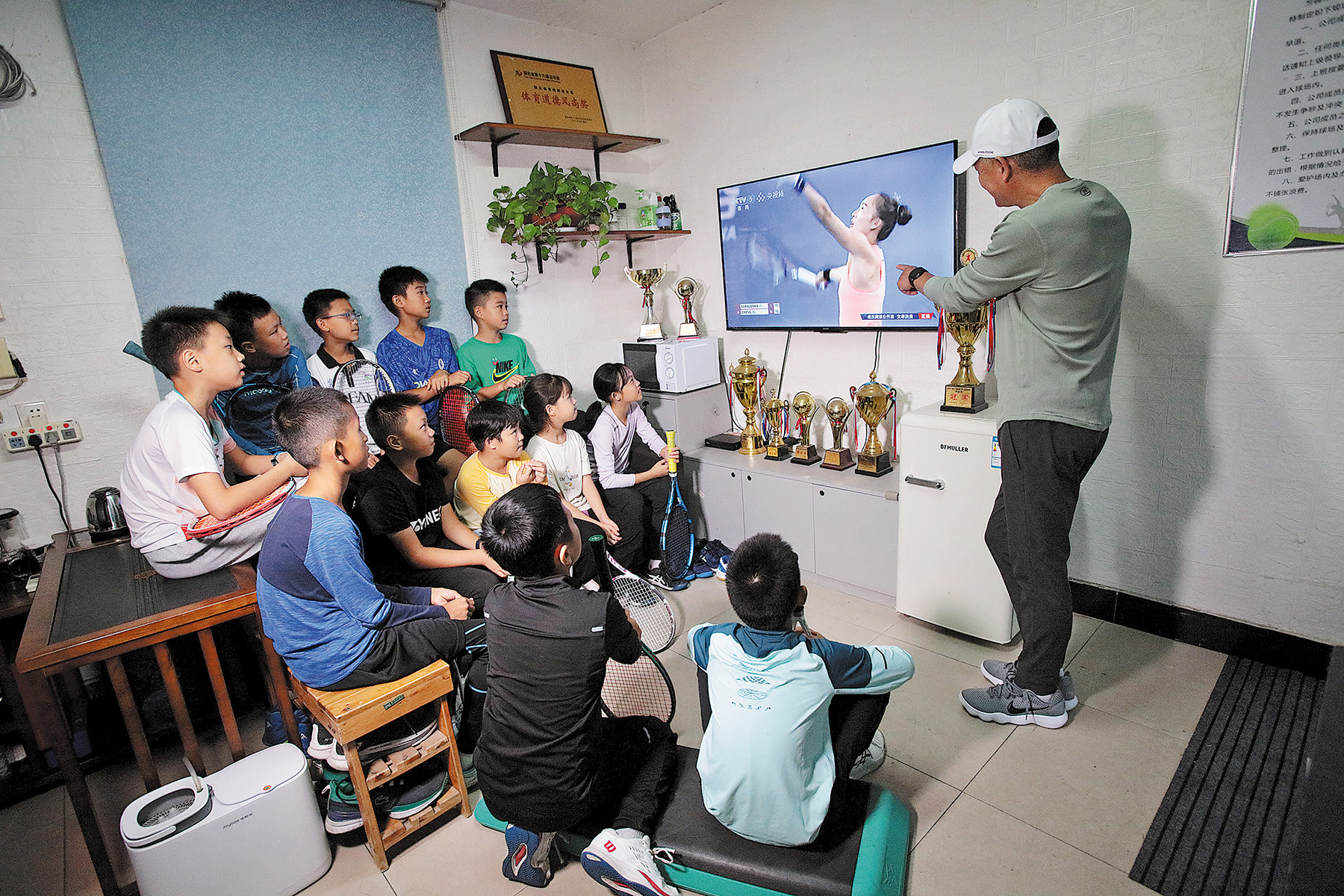
Mengxiao and Zheng also share another connection: they have both trained under the same coach.
Mengxiao has been training with Yu Liqiao for more than four years. Yu, the women’s singles champion at the 5th National Games in 1983, has been coaching in Hubei since her retirement, with both multiple Grand Slam winner Li Na and Zheng among her former charges.
Mengxiao trains four times a week, with each session lasting three hours. She understands the strictness of Yu’s approach and strives to meet the coach’s high expectations.
“I enjoy the feeling of chasing down every ball on the court and the thrill of winning,” Mengxiao said. “If I lose a match I should have won, I end up crying. But if I can’t beat someone, it just shows I need to work harder and keep improving.”
At just 11 years of age, Mengxiao has already adopted a professional approach to her tennis career, traveling across the country to compete in tournaments and earn youth ranking points.
Accompanying her every step is her mother, Dong Yi, who plays an integral role in Mengxiao’s journey. Dong handles all logistics, from booking accommodation to transportation, while also providing support during matches and assisting with physical recovery.
“The domestic tournament and ranking system is quite developed, and the competition is intense,” Dong said.
“This competition-based training has proved beneficial for Mengxiao. We identify challenges through matches and then work to address them in practice.”
While it remains uncertain whether Mengxiao will pursue a professional tennis career, Dong acknowledges the challenges that lie ahead. Having already claimed several tournament victories, Mengxiao’s recent experience as a ball girl temporarily removed her from competition and the opportunity to accumulate points, causing her to drop several ranks and jeopardizing her chances of making the year-end finals.
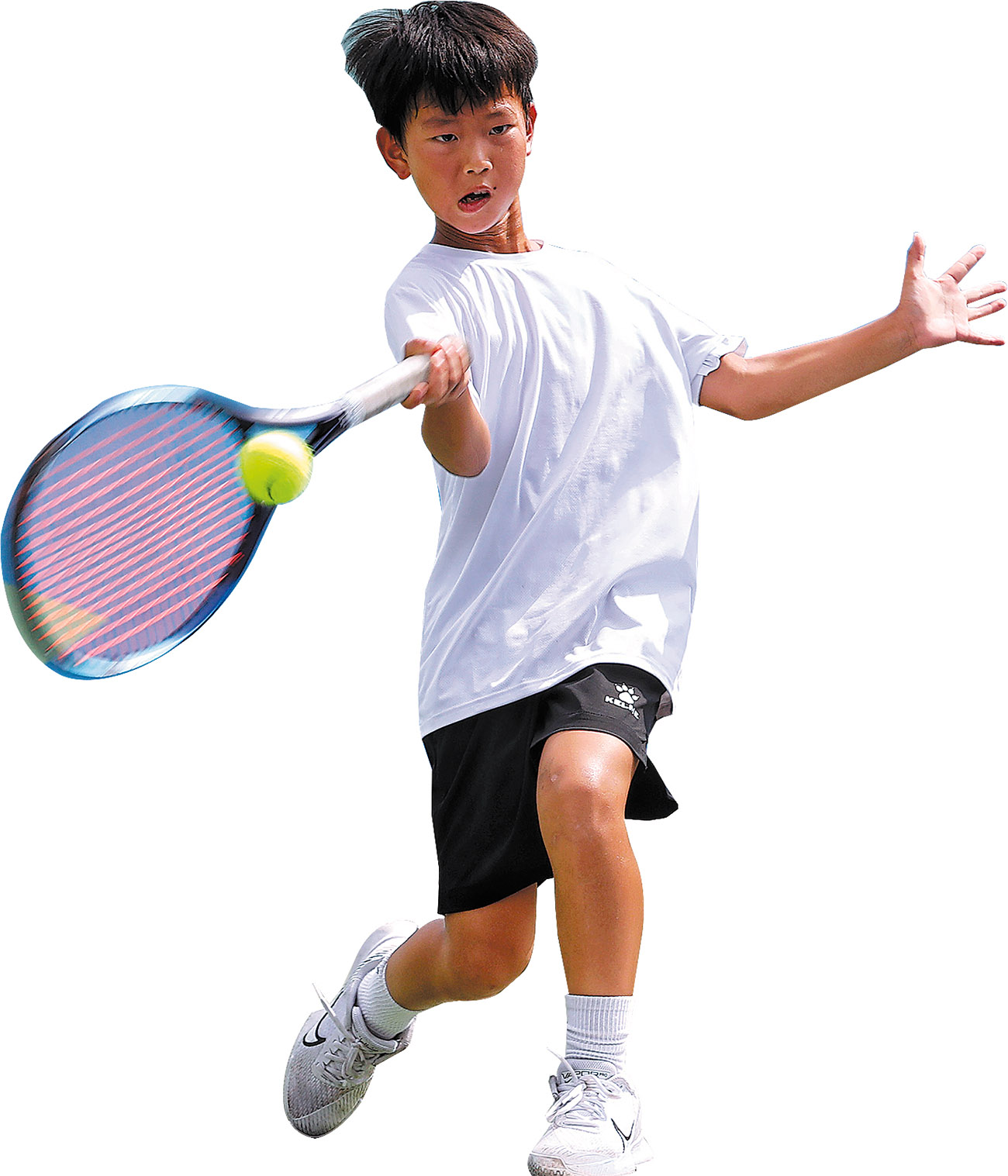
Dong emphasized that the decision to serve as a ball girl was ultimately her child’s choice and the family fully supported it.
“Since she returned from her experience as a ball girl, I’ve seen remarkable growth in her. It seems her capacity for independent thinking has matured significantly, which I consider a tremendous gain,” Dong said.
Huang Yanhong, the director of the tennis management center at the Hubei Provincial Sports Bureau, said nurturing a “phenomenal athlete” is a significant challenge.
“The success of such athletes is rooted in a legacy passed down through generations of tennis players. Great coaches cultivate exceptional students, who, upon retiring, often become excellent coaches themselves. This cycle fosters the continuous growth and development of the sport,” Huang said.
“We have effectively established a professional, international, and commercial model for training tennis players,” she added.
To provide young athletes with ample opportunities for competition, Hubei has secured several international tournaments, including the WTA 1000 Wuhan Open. Additionally, the province hosts the ITF Junior Tour in Wuhan and Jingshan, while local youth tennis competitions are held nearly every week in Wuhan.
The annual Youth Tennis Championships in Hubei are a key event for players aged 8 to 18. This year’s tournament attracted over 500 participants, with matches taking place from 8 am to 10 pm daily.
“Our organizational structure is now robust. Each city has its own association, weekly tournaments are scheduled, and there’s tennis available every day,” Huang said.
In 2014, Wuhan native Li Na made history as the first Asian player to win the Australian Open singles title. Zheng, then 11, and her teammates cheered in front of the TV.
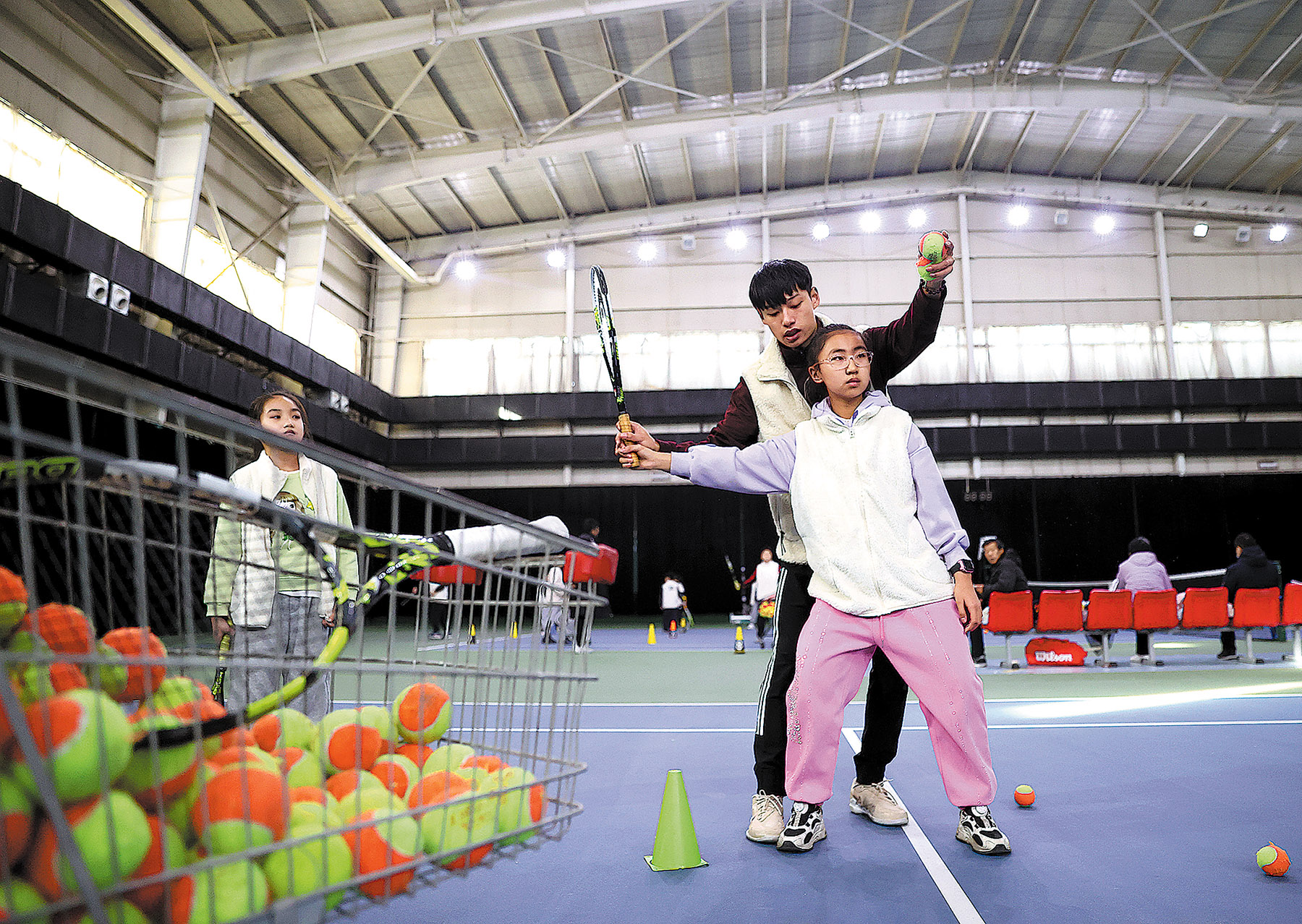
A decade later the wheel turned full circle, when Zheng’s Olympic victory was witnessed by young fans like 11-year-old Mengxiao, who watched from their homes.
Over the past decade the Wuhan Open has not only generated significant economic and social benefits for the city but also established itself as a shining symbol of Wuhan’s identity.
Wang Tao, general manager of Wuhan Culture Tourism Group Sports Development Investment Co and co-director of the tournament, said fans from across the country flocked to Wuhan this year to watch Zheng’s matches. Forty-six percent of the spectators came from outside the city.
“The nationwide audience is not only a boost to the tournament’s profile but also a substantial enhancement of Wuhan city’s image,” Wang said.
“Hubei holds a special place in Chinese tennis, producing champions like Li Na, Olympic gold medalist Li Ting, and now Zheng,” he said.
“We have a strong coaching system, ample facilities, and our tournaments foster talent by training ball kids and volunteers, expanding tennis’ reach among young people.”
In 2013, Wuhan established a tennis training base at its sports academy, attracting top talent from across the country to develop elite players. Today, Wuhan boasts over 2,300 tennis courts, more than 100 schools offering tennis programs, and 270 registered young tennis players.
No 2 Primary School of Wuhan Optics Valley has embraced tennis for over six years, growing alongside the Wuhan Open, which takes place nearby at the Optics Valley International Tennis Center.
Deputy principal Zhang Yongming recalls the school’s modest beginnings, when lessons were conducted on the playground with portable nets due to a lack of proper courts.
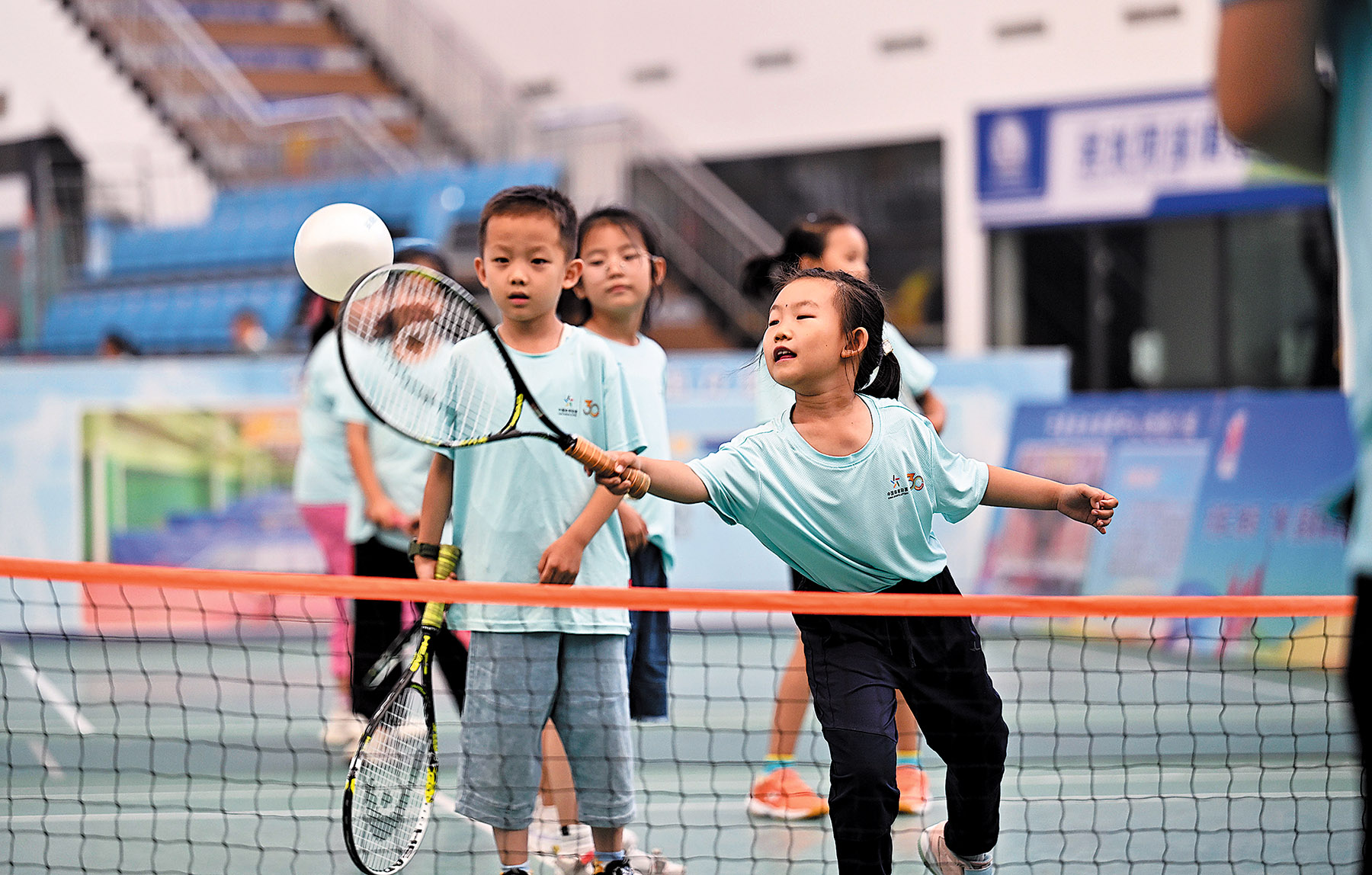
Today, the school boasts two regulation courts, two smaller ones for tennis instruction, and a dedicated team of three full-time tennis instructors. Every year, hundreds of students sign up for tennis classes, which are in high demand.
“The Wuhan Open, held right here in our district, has energized the entire local tennis scene,” said Zhang.
Tennis instructor Yu Xiaoguang said the school provides introductory classes for all students and selects those who exhibit a greater passion for tennis to participate in daily morning training sessions aimed at advancing their skills.
On Oct 10, during the Wuhan Open, United States tennis player Nicole Melichar-Martinez and Australia’s Ellen Perez, the second-seeded women’s doubles pair, visited the school. The visit fell on Perez’s birthday, and the students celebrated warmly with her.
The duo joined the school’s tennis students for a practice session. Zhang Xiyu, an 11-year-old who has been playing for over three years and was recently a runner-up in the girls’ doubles at the Wuhan Youth Games, was the first to step on the court.
“This was my first time playing with world-class players. I was nervous at first, but later I relaxed. Melichar was really strong, but she smiled the whole time and was so friendly. I had so much fun,” she said.
Xiyu watched every one of Zheng’s matches at the Wuhan Open, to learn from the professional players. “After watching them play, I felt like a pro myself when I hit the court,” she said.
Melichar was surprised the school offered tennis lessons. “At home, we didn’t have tennis in school. I had to find coaches or train at clubs, often playing with my family,” she said.
The school’s tennis coach Yu Xiaoguang noted the students were more excited and focused after meeting the players. “Seeing top athletes live is inspiring, but training with them in person is something special. It motivates them to dream of becoming professionals,” he said.
Contact the writers at liyingxue@chinadaily.com.cn


